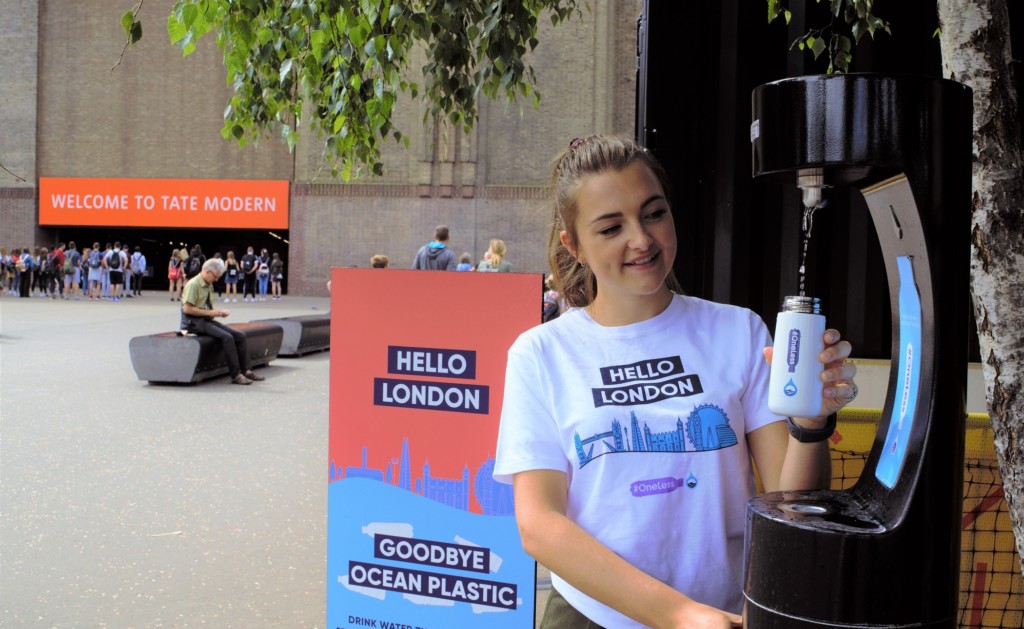Stories and systems change: #OneLess and the Marine CoLABoration
#OneLess is an initiative of the Marine CoLABoration (CoLAB), established in 2015 to explore how NGOs might collaborate and communicate more effectively on marine conservation issues.
The Marine CoLAB is the corner stone of our Valuing the Ocean programme, set up because research commissioned from Forum for the Future on the gaps and needs for marine conservation had shown us two things. One, the organisations focused on ocean protection needed to share knowledge and work more collaboratively across sectors. Two, people – from the general public to policymakers – didn’t have ocean protection on their radar. They didn’t understand why a healthy ocean mattered to them or society, or what they could do to protect it.
The CoLAB initially brought together nine NGOs with a breadth of interests, expertise and areas of operation. Some focused on marine conservation, others specialized in economics, law, social science, communications and/or systems change. Participation was funded by CGF – recognizing that it takes resource to collaborate – and facilitated by FoAM, experts in ‘lab-type’ approaches which bring organisations together to innovate and accelerate change.
Through a programme of workshops, the CoLAB established ‘outstanding levels of collaboration and trust’ among the group and the ‘CoLABoratory’ approach: experimental, values based and systemic. A values-based approach is one that drives action through promoting the connection between people’s values – what they care about – and the benefits of a healthy ocean. A systems-change approach identifies the levers for change across a system and builds the networks necessary to pull those levers. Connecting the dots and communicating a compelling ocean ‘story’ are key.
The approach has underpinned all the CoLAB has achieved since. We see this clearly in the success of its very first ‘experiment’ – what became the #OneLess campaign. CoLAB member Zoological Society of London (ZSL) was working with Selfridges department store to raise awareness of the problem of plastic in the ocean. This was in the days pre Blue Planet II, and the challenge was how to get people in a city like London to care about the impact of throwaway plastic and influence lasting change.

#OneLess Fountain Outside The Tate © ZSL Credit Alice Chamberlain
The CoLAB solution was to use the single-use plastic water bottle as a ‘flagship species’ to highlight to Londoners their city to sea connections via the River Thames and inspire change through a story of personal agency and ocean protection (rather than a focus on city waste reduction). Hence, the naming of the #OneLess campaign – everyone’s actions make a difference – and the brand design and messaging which reinforce the idea of ocean connection, from the strapline ‘because everything we do touches the ocean’ to visuals like the #OneLess whale holding up London’s iconic skyline.
The CoLAB team also mapped the system of hydration on the go in London. This identified areas of intervention – the challenges and opportunities for change – across key dimensions, including policy, infrastructure, business practice and innovation, and behavioural norms. Influencing the policy of the then newly elected London Mayor, Sadiq Khan, was a particular focus.
Six years on, the #OneLess film tells the story of the campaign’s success: national policy influence; policy change in London; £5 million investment in refill infrastructure from the London Mayor and Thames Water; the #OneLess Pioneer Network of businesses and organisations across London, catalysing change through networks and supply chains that reach worldwide; cutting edge science and cross-sector collaboration; and shifting public norms. By 2020, the fountains had dispensed refill water equivalent to 32 million single-use plastic bottles, saving more than £150 million.
As the campaign wraps up in London, the team has produced the #OneLess toolkit to share with anyone interested in system changing approaches whether for single use plastic or other issues.
